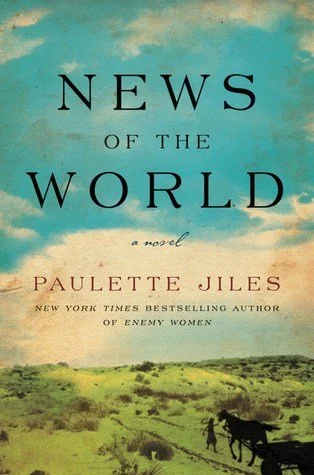Westerns
I have a wide definition of a “western” as a work of fiction. James Fenimore Cooper’s last Leatherstocking novel, The Prairie (1827), is a Western in even a modern sense of the category. The Dime Western of the post-Civil War period, and the sensational “yellow” Westerns that overlapped the end of the wars with the American Indians of the West created and strengthened the stereotypes and conventions that later generations of writers had to deal with.
What is important and interesting, however, is that those later generations of writers are good, sometimes great. From Zane Grey (Ohio-born) to Louis L’Amour, A.B. Guthrie to Larry McMurtry, Dorothy Johnson to Paulette Giles, Elmer Kelton to Elmore Leonard, Thomas McGuane to Edward Abbey to N. Scott Momaday - so many writers have faced and continue to face the West and its history and its landscape.
I have a Westerns section in the store in the far frontier of the North Room, but I have other Westerns scattered in different areas, outposts in other literatures. I will work to gather them on this page, an ongoing building of community. Audiobooks of Western writers, including Zane Grey and A.B. Guthrie, Jr., are listed on my Audiobooks - Fiction, Poetry, Drama page.
A note on Louis L’Amour’s books: they are listed in alphabetical order by title with the exception of the 17-volume Sacketts titles, which are clustered at the end and numbered according the rough chronology L’Amour intended (it was flexible by his intention and unfinished at his death).
Listed here alphabetically by author.
News of the World
News of the World
National Book Award Finalist—Fiction
In the aftermath of the Civil War, an aging itinerant news reader agrees to transport a young captive of the Kiowa back to her people in this exquisitely rendered, morally complex, multilayered novel of historical fiction from the author of Enemy Women that explores the boundaries of family, responsibility, honor, and trust.
In the wake of the Civil War, Captain Jefferson Kyle Kidd travels through northern Texas, giving live readings from newspapers to paying audiences hungry for news of the world. An elderly widower who has lived through three wars and fought in two of them, the captain enjoys his rootless, solitary existence.
In Wichita Falls, he is offered a $50 gold piece to deliver a young orphan to her relatives in San Antonio. Four years earlier, a band of Kiowa raiders killed Johanna’s parents and sister; sparing the little girl, they raised her as one of their own. Recently rescued by the U.S. army, the ten-year-old has once again been torn away from the only home she knows.
Their 400-mile journey south through unsettled territory and unforgiving terrain proves difficult and at times dangerous. Johanna has forgotten the English language, tries to escape at every opportunity, throws away her shoes, and refuses to act “civilized.” Yet as the miles pass, the two lonely survivors tentatively begin to trust each other, forming a bond that marks the difference between life and death in this treacherous land.
Arriving in San Antonio, the reunion is neither happy nor welcome. The captain must hand Johanna over to an aunt and uncle she does not remember—strangers who regard her as an unwanted burden. A respectable man, Captain Kidd is faced with a terrible choice: abandon the girl to her fate or become—in the eyes of the law—a kidnapper himself.

